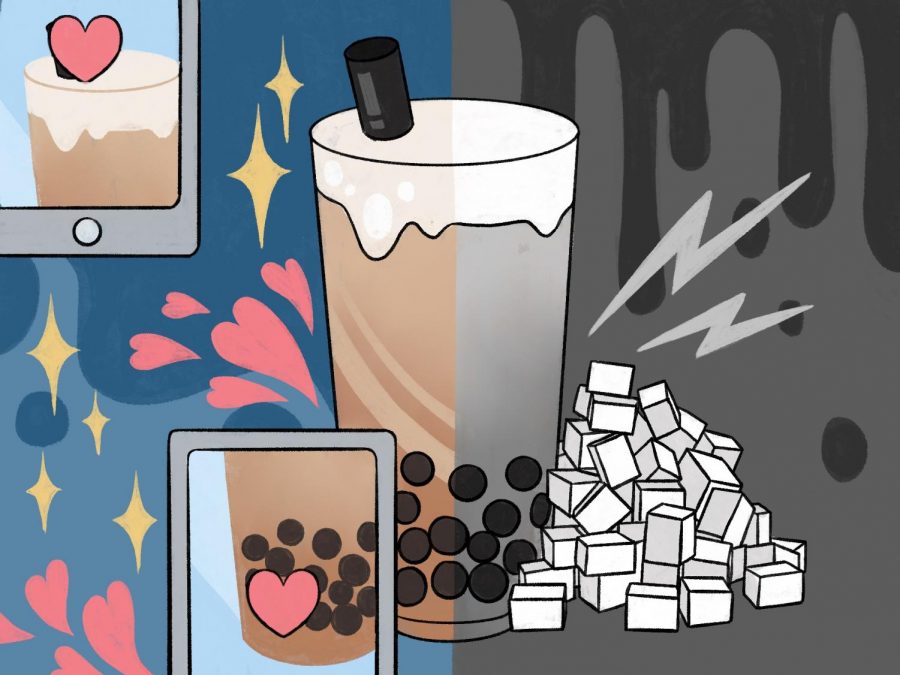OPINION: Despite its popularity, boba has harmful effects
The sweetners and pearls found in most boba drinks contribute to its harmful health effects.
Originating in Taiwan in 1988, boba has made its way to the U.S., where it has exploded into a popular drink. Unlike most trends that usually go out of fashion quickly, the commotion about boba has lasted a few years. Many students around the Bay Area, including SCHS students, get boba after school and socialize with others. While it is a unique drink, there is a lot more to the industry than meets the eye. Boba tea is an addictive and unhealthy drink that will only lead to health problems.
The sugars, sweeteners, calories and boba pearls make boba an unhealthy drink. Just because the word “tea” is in the name does not make the drink healthy. All of the added sugars, sweeteners and milk cancel out the health benefits of regular tea. TheHealthy.com says an average 16-ounce boba drink can have around 400 calories. Additionally, the tapioca pearls are made up of starchy carbs and once cooked, a one-fourth cup serving of pearls can contain 160 calories. This means that one 16-ounce drink can add up to around 560 calories.
The cherry on top of this sugar-loaded, high-carb boba sundae is the caffeine. While caffeine can provide an energy boost, too much of it can cause sleep disorders. Regular tea can include reduced risk of heart attack and lower stress. Boba tea, however, will increase those risks instead of reducing it due to the high levels of unhealthy ingredients.
According to an article by parenting.com, overconsuming boba tea can cause chemicals in the brain to be overstimulated, which can lead to anxiety attacks. Additionally, health.com reported that the pearls can cause constipation because they are difficult to digest, caused by an added fiber called guar gum.
Boba can also have a severe impact on blood pressure. According to thelist.com, consuming too much boba can potentially lead to an imbalance in blood pressure. Another one of boba’s detrimental effects is its impact on people’s skin. Parenting.com reported that excess tea can generate extreme heat in the body, leading to an imbalance in chemicals that can cause an outbreak of acne. The abundance of tea and sugar in boba can also cause a spike in insulin, resulting in skin inflammation.
Boba is a lovable drink, which explains why many choose to consume it daily. At the very least, it is important to stay mindful of all the sugar and negative health effects it can have. People should avoid drinking boba daily, or avoid buying it with 100 percent sugar on a regular basis. Just because boba is popular does not mean people should drink it.



n • Jul 18, 2024 at 2:20 pm
drink it anyway